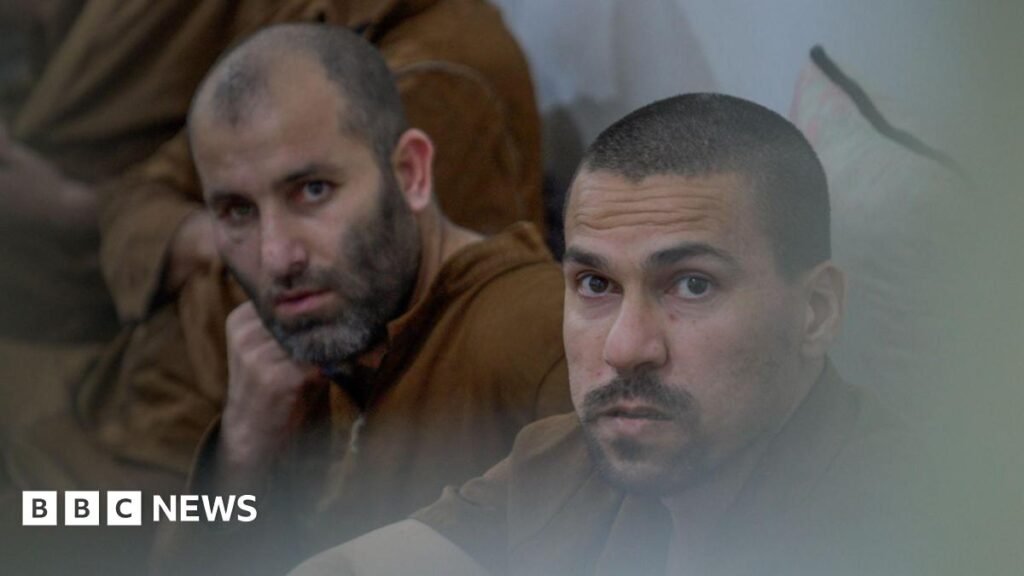“The new leader Ahmed al-Sharaa (the head of the Islamist group Hayat Tahrir al-Sham) made a speech in which he declared that he would give freedom to all. We also want freedom. We want to go, most likely, to Russia. the only country that will accept us.”
The head of the camp tells us that the others believe that IS will come to their aid and knock them out. She asked us to withhold her name because she fears for her safety.
“Since the fall of Assad, the camp has been calm. “Usually, when it’s so quiet, it means women are organizing themselves,” she said. “They packed their bags to go. They say, “We will soon be out of this camp and refreshed. We will be back again as IS.”
She says that changes are visible even in children who chant slogans and swear at passers-by. “They say, ‘We’ll come back and get you. It (IS) fast.’
During our time at camp, many children raised their right index finger. The gesture is used by all Muslims in daily prayer, but it is also widely used by IS militants in propaganda images.
The women at Camp Roj are not the only ones packing their bags.
Some Kurdish civilians in the town of al-Hasakah are doing the same – fearing a return of jihadists and a new Turkish ground offensive in northeastern Syria.
Juan, 24, who teaches English, prepares to go – reluctantly.
“I’ve packed my bag, I’m preparing my ID and important documents,” he tells me. “I don’t want to leave my home and my memories, but we all live in a state of constant fear. The Turks are threatening us and the door is open to IS. They can attack their prisons. They can do whatever they want.”
Juan was already displaced once before from the northwestern city of Aleppo at the start of the Syrian civil war in 2011. He ponders where to go this time.
“The situation requires urgent international intervention to protect the civilian population,” he says. I ask if he thinks he will come. “No,” he replies quietly. But he asks me to mention his request.
Additional reporting by Michael Steininger and Matthew Goddard

